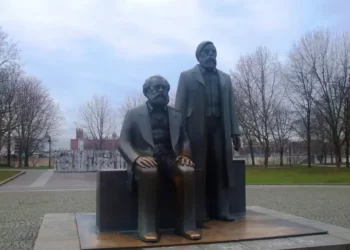In sociology, the term ‘comprador’ refers to a specific social role that has historical and economic significance. The concept of ‘comprador’ emerged in the context of colonialism and has since evolved to encompass various aspects of globalization and economic dependency. This article aims to outline and explain the concept of ‘comprador’ within the field of sociology.
Definition and Origin
The term ‘comprador’ originates from the Portuguese word ‘comprador’ meaning ‘buyer.’ In the context of sociology, it refers to a person or group of people who act as intermediaries between foreign capitalists and the local population in colonized or dependent economies.
The concept of ‘comprador’ emerged during the era of European colonialism when foreign powers established economic dominance over colonized regions. The compradors were individuals from the local elite who facilitated the economic exploitation of their own communities by collaborating with the colonial powers.
Role and Function
The primary role of the comprador is to serve as a link between the foreign capitalists and the local economy. They act as intermediaries, facilitating the extraction of resources and the implementation of economic policies favorable to the foreign powers.
Compradors often occupy positions of power and influence within the local society, such as in the government, business, or bureaucracy. They use their positions to advance the interests of the foreign capitalists, often at the expense of the local population.
One of the key functions of the comprador is to control and manipulate the local market in favor of the foreign capitalists. They may engage in monopolistic practices, price manipulation, or exclusive trade agreements that benefit the foreign powers while restricting the growth and development of local industries.
Furthermore, the comprador class often accumulates wealth and privileges through their collaboration with the foreign capitalists. They may acquire economic assets, land, or other resources, further widening the economic disparities within the society.
Evolution and Contemporary Relevance
The concept of ‘comprador’ has evolved over time and expanded beyond its colonial origins. In the era of globalization, the comprador class continues to play a significant role in many developing countries.
In contemporary society, the term ‘comprador bourgeoisie’ is often used to describe the elite class that collaborates with multinational corporations and global financial institutions. These individuals or groups act as intermediaries, promoting the interests of the global capitalist system at the expense of local economies and communities.
The comprador bourgeoisie may engage in practices such as offshore banking, tax evasion, or corruption, which further exacerbate economic inequalities and hinder the development of local industries.
Criticism and Resistance
The concept of ‘comprador’ has faced criticism from various perspectives. Critics argue that the comprador class perpetuates dependency, inequality, and exploitation within society. They argue that the collaboration between the compradors and foreign capitalists hinders the self-reliance and autonomy of local economies.
Resistance against the comprador class and its practices has been observed throughout history. Movements for national liberation, decolonization, and economic justice have often targeted the compradors as symbols of oppression and exploitation. These movements aim to challenge the dominance of foreign powers and promote economic sovereignty and social equity.
Conclusion
The concept of ‘comprador’ in sociology highlights the role and impact of intermediaries who collaborate with foreign capitalists to exploit local economies. The comprador class, whether in its historical colonial context or in contemporary globalization, has been criticized for perpetuating dependency and inequality. Understanding the concept of ‘comprador’ is crucial for analyzing power dynamics, economic exploitation, and resistance within societies.








